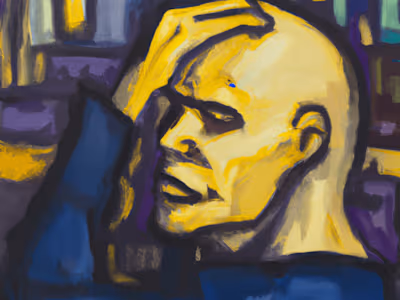TAR: A Psychological Drama for Deeper Thoughts
Disclaimer: This is an article about a personal review of the film TAR. As a result, it includes personal ideas and thoughts about the deeper meanings of the film and not a critical overview of the main performances or actors.

TAR is a film that brings to the surface all the forms and effects of power abuse. The complexity of power and human nature in this film describes in an amazing way the impact of action and feelings between the surface and the inner self of the main character Olivia Tar.
It is known that power is an important aspect of human societies and is necessary for maintaining order and progress. However, when power is abused, it can have devastating effects on individuals and societies. In comparison with that fact, power abuse can take many forms, such as physical, emotional, financial, sexual, and verbal abuse. Physical abuse involves the use of physical force to control or harm others.
Emotional abuse involves the manipulation of emotions to control or harm others, such as through insults, threats, or humiliation. Financial abuse involves the control or exploitation of another person's finances, such as through stealing or misusing their money. Sexual abuse involves the use of sexual coercion, violence, or harassment to control or harm others. Verbal abuse involves the use of language to control or harm others, such as through name-calling or yelling.
The effects of power abuse are numerous and can be long-lasting. Individuals who experience power abuse may suffer from physical injuries, mental health problems, and financial difficulties. They may also experience social isolation and loss of self-esteem. In extreme cases, power abuse can result in death, as seen in cases of domestic violence or police brutality. Furthermore, power abuse can also have negative effects on society as a whole. When those in power abuse their authority, it can lead to corruption, social injustice, and the erosion of trust in public institutions.
In this case scenario Olivia Tar (a fictional character) and her power abuse cracks in front of the truth of her actions, and all the manipulative ways that she used to get on top of her career. Power abuse is like an illusion of superiority above others. Although nothing is real at all. Olivia Tar hides away her real self and seems at the same time, that she even don't understand or feel anything about her actions and how much she had hurt other people. All these circumstances created a "monster" such as her symphony name at the very end of the film. As happens in many cases power abusers have a really deep need for control over their environment and the people around them. They may feel anxious or insecure when they are not in charge or when things are not going their way. They may use their power to manipulate others, enforce their will, and maintain a sense of dominance.
Also, power abusers may have difficulty empathizing with others or understanding their perspectives. They may view other people as objects or obstacles to be controlled rather than as individuals with their own needs and feelings. This lack of empathy can make it easier for them to justify mistreating others. Albeit, many power abusers have narcissistic tendencies, meaning they have an inflated sense of self-importance, a need for admiration, and a lack of empathy. They may believe they are superior to others and entitled to special treatment or privileges.
Surprisingly, abusers may have underlying feelings of insecurity or low self-esteem. They may use their power to compensate for these feelings or to gain validation and approval from others. However, their abusive behavior can further damage their self-esteem and create a cycle of insecurity and abuse. Last but least, power abusers may engage in cognitive distortions, which are patterns of thinking that are irrational or inaccurate. They may, for example, engage in black-and-white thinking (seeing things as all good or all bad), overgeneralization (making sweeping negative conclusions based on limited evidence), or blaming others for their own problems. Some other power abusers may have a history of trauma or abuse themselves, which can contribute to their behavior. They may have learned to use power as a defense mechanism or coping strategy to protect themselves from further harm.
As we can understand by now, power abusers can be found anywhere, including in art. Olivia Tar is such a creative and very talented composer but we must separate the art from the artist and more specifically, from the person Olivia Tar is.
We can't be sure if Olivia even at the end of the movie, felt any remorse for her actions and all the people in her life that she hurt or if the only thing that hurt Olivia is that the truth that came to the surface destroyed her reputation and her career. One thing is for sure true: "the darkest monsters hide in the most creative places so they can give some light or piace to their demons".
Like this project
Posted Feb 28, 2023
Let's have a talk about TAR








